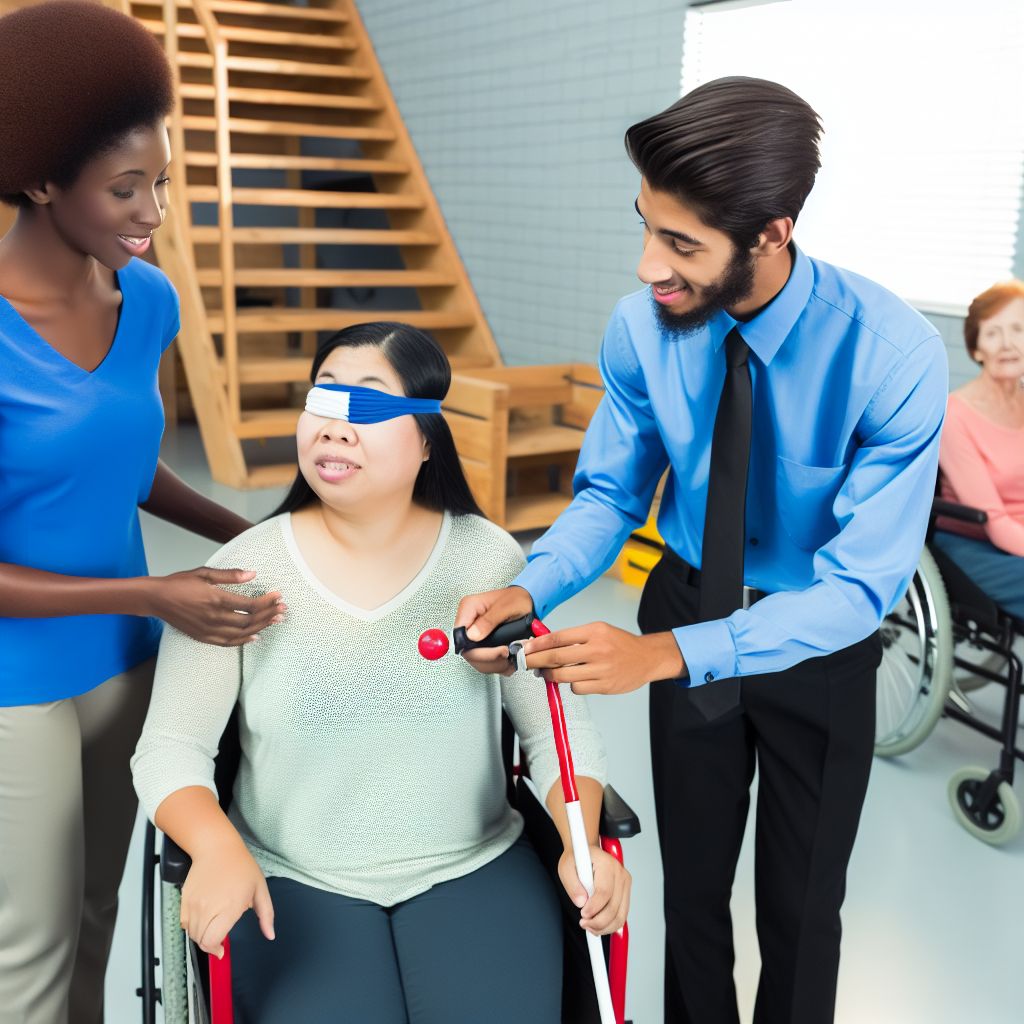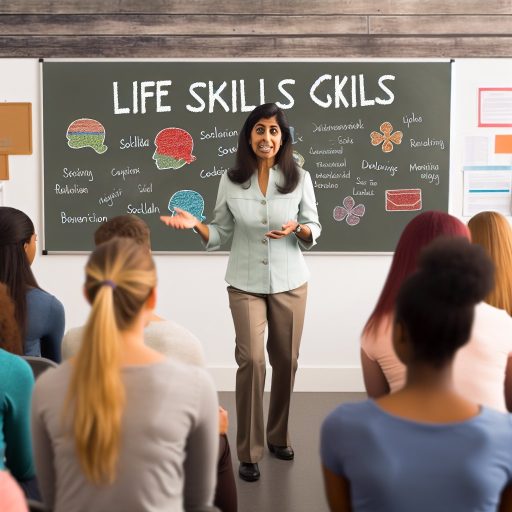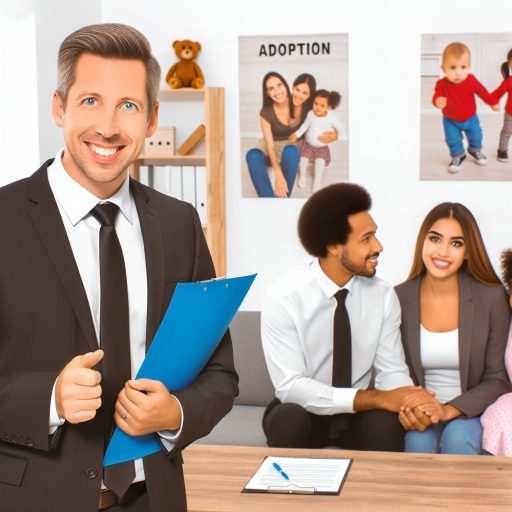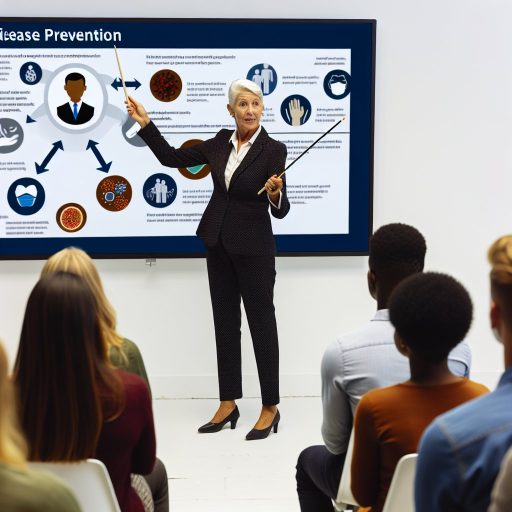Introduction:
Disability services coordinators play a crucial role in supporting individuals with disabilities by providing them with necessary resources and assistance.
These coordinators serve as a link between the disabled individual and the services they need, ensuring they receive the care and support required to live a fulfilling life.
Key Qualities of Effective Disability Services Coordinators:
- Empathy: Understanding the unique challenges and needs of individuals with disabilities is essential for effective coordination.
- Communication: Clear and open communication helps build trust and ensures the individual’s needs are met effectively.
- Problem-Solving Skills: Ability to navigate complex systems and find solutions to overcome barriers in accessing services.
- Advocacy: Serving as a strong advocate for individuals with disabilities, ensuring their voices are heard and rights are protected.
- Organizational Skills: Coordinators need to juggle multiple tasks, deadlines, and responsibilities efficiently to provide timely assistance.
- Flexibility: Adapting to the changing needs and circumstances of the individuals they support is key to effective coordination.
- Resourcefulness: Identifying available resources and connecting individuals with relevant services that can address their specific needs.
- Cultural Competence: Understanding and respecting the diversity of backgrounds and experiences of individuals with disabilities.
Strong Communication Skills
Effective communication is a key quality that every disability services coordinator should possess.
They must be able to communicate clearly and effectively with individuals who have disabilities, their families, and other professionals involved in their care.
Building Relationships
Disability services coordinators must have strong communication skills in order to build trust and rapport with their clients.
This involves being able to listen attentively, empathize with their struggles, and provide support and guidance when needed.
Collaboration
In many cases, disability services coordinators work as part of a team that includes healthcare providers, educators, and social workers.
Being able to communicate effectively with all team members is crucial for ensuring that the individual with disabilities receives comprehensive and coordinated care.
Advocacy
Disability services coordinators often act as advocates for their clients.
They help clients navigate complex systems and access the resources they need.
This requires the ability to communicate assertively on behalf of their clients, whether it’s with insurance companies, government agencies, or service providers.
Empowerment
Effective communication is also essential for empowering individuals with disabilities to advocate for themselves.
Disability services coordinators must be able to provide them with the information and tools they need to make informed decisions about their care and support.
Empathy and Understanding:
Effective disability services coordinators exhibit high levels of empathy and understanding towards individuals with disabilities.
They approach their role with compassion, recognizing the unique challenges that each person may be facing.
Through active listening and genuine care, they create a safe and supportive environment for those in need.
By demonstrating empathy, coordinators can build trust and rapport with individuals, fostering a sense of comfort and openness.
This enables them to better understand the specific needs and concerns of each person, leading to more personalized and effective support.
Understanding the challenges that individuals with disabilities face is crucial for providing appropriate and impactful services.
Coordinators must educate themselves on various disabilities, their impacts, and the best practices for support.
Transform Your Career Today
Unlock a personalized career strategy that drives real results. Get tailored advice and a roadmap designed just for you.
Start NowThis knowledge allows them to tailor their services to meet the specific needs of each individual, maximizing the benefits and outcomes.
Moreover, empathy and understanding help coordinators to address the emotional and psychological aspects of disability.
They can offer emotional support, validation, and encouragement, empowering individuals to navigate their challenges with resilience and positivity.
Empathy and understanding are key qualities that effective disability services coordinators possess.
By embodying these traits, they can create a more inclusive and supportive environment for individuals with disabilities, promoting their well-being and success.
- Compassionate approach towards individuals with disabilities
- Ability to understand and empathize with the challenges they face
You Might Also Like: Collaboration Among Residential Counseling Staff
Organization and Time Management:
Ability to juggle multiple responsibilities and prioritize tasks effectively.
Ensure timely delivery of services and support to individuals with disabilities.
Being an effective disability services coordinator goes beyond just managing paperwork and coordinating services.
It also requires excellent organization and time management skills to ensure that individuals with disabilities receive the support they need in a timely manner.
Why is Organization Important?
Individuals with disabilities often require a variety of services and supports to help them navigate daily life.
As a coordinator, you will need to keep track of each individual’s needs, schedules, and preferences to ensure they receive the appropriate support.
How to Juggle Multiple Responsibilities:
One key quality of an effective disability services coordinator is the ability to juggle multiple responsibilities.
This means being able to handle various tasks simultaneously without dropping the ball on any of them.
- Create a prioritized to-do list: Start each day by listing out all the tasks you need to accomplish and rank them in order of importance.
- Set realistic deadlines: Allocate specific time blocks for each task to ensure you stay on track and meet deadlines.
- Delegate when necessary: Don’t be afraid to assign tasks to other team members or volunteers to lighten your workload and ensure everything gets done on time.
Ensuring Timely Delivery of Services:
Timeliness is crucial when it comes to providing services and support to individuals with disabilities.
Delayed services can have a significant impact on their well-being and quality of life.
As a coordinator, it is your responsibility to ensure that services are delivered promptly.
- Establish clear timelines: Work with individuals with disabilities and service providers to set clear timelines for service delivery and follow-up.
- Monitor progress: Regularly check in with service providers and individuals to track progress and address any delays or issues promptly.
- Communicate effectively: Keep open lines of communication with all parties involved to ensure everyone is on the same page and aware of any potential delays.
Organization and time management are essential qualities for an effective disability services coordinator.
By staying organized, prioritizing tasks, and ensuring timely delivery of services, you can make a meaningful difference in the lives of individuals with disabilities.
Showcase Your Business Today
Reach thousands of readers actively exploring professional services. Publish your business profile and grow your audience now.
Publish NowGain More Insights: Family Support Worker Certification and Licensing
Knowledge of Disability Laws and Regulations:
- Stay updated on current laws, regulations, and best practices related to disability services.
- Ensure compliance with legal requirements and provide appropriate support to individuals with disabilities.
Having a thorough understanding of disability laws and regulations is essential for disability services coordinators to effectively support individuals with disabilities.
Here are some key points to consider:
Stay Updated on Current Laws and Regulations
Disability laws and regulations are constantly evolving, so it’s crucial for disability services coordinators to stay informed about any changes or updates.
This includes federal, state, and local laws that impact the services provided to individuals with disabilities.
By staying up-to-date, coordinators can ensure that their services are in compliance with the latest legal requirements.
Knowledge of Best Practices
Alongside understanding laws and regulations, disability services coordinators should also be knowledgeable about best practices in the field.
Best practices encompass effective strategies, methods, and approaches for working with individuals with disabilities.
By incorporating best practices into their work, coordinators can enhance the quality of services and support they provide.
Ensure Compliance with Legal Requirements
Compliance with legal requirements is non-negotiable for disability services coordinators.
They must ensure that all services and programs offered to individuals with disabilities adhere to applicable laws and regulations.
This includes providing accommodations, accessibility, and support that align with legal standards to promote inclusivity and equality.
Provide Appropriate Support
Effective disability services coordinators understand the diverse needs of individuals with disabilities and provide appropriate support accordingly.
This may include facilitating access to resources, services, and accommodations that are tailored to each individual’s unique requirements.
By offering personalized support, coordinators can empower individuals with disabilities to thrive and succeed.
A solid knowledge of disability laws, regulations, and best practices is fundamental for disability services coordinators.
By staying informed, ensuring compliance, and providing appropriate support, coordinators can effectively meet the needs of individuals with disabilities and promote their well-being and success.
Learn More: Challenges Faced by Mental Health Technicians
Problem-Solving Skills:
- Ability to quickly identify and address issues that arise for individuals with disabilities
- Develop creative solutions to overcome challenges and barriers to accessibility and inclusion
Effective disability services coordinators must possess strong problem-solving skills to address the unique needs of individuals with disabilities.
These skills are crucial in ensuring that barriers to accessibility and inclusion are identified and remedied promptly.
When facing challenges that may hinder the participation of individuals with disabilities, coordinators must be able to think quickly and respond effectively.
This requires a keen ability to identify issues as they arise and take proactive measures to address them.
By developing creative solutions, coordinators can find new ways to overcome obstacles and ensure that individuals with disabilities are able to fully engage in services and programs.
This may involve thinking outside the box and exploring innovative approaches to problem-solving.
Being proactive in problem-solving is key to creating a supportive and inclusive environment for individuals with disabilities.
Effective coordinators anticipate potential obstacles and work proactively to prevent them from becoming significant barriers to access.
Problem-solving skills are essential for disability services coordinators to effectively address issues that may arise for individuals with disabilities.
By developing creative solutions and being proactive in problem-solving, coordinators can ensure that services are accessible and inclusive for all.
Delve into the Subject: Innovative Approaches in Substance Abuse Counseling

Collaboration and Teamwork:
Disability services coordinators must work effectively with other professionals, agencies, and community resources to provide comprehensive support to individuals with disabilities.
By fostering a collaborative approach to service delivery, disability services coordinators can achieve better outcomes for the individuals they serve.
Importance of Collaboration:
Collaboration is crucial in the field of disability services as it allows for a holistic approach to providing support.
By working with other professionals, agencies, and community resources, disability services coordinators can tap into a range of expertise and resources that can benefit individuals with disabilities.
Building Partnerships:
Disability services coordinators should actively seek out partnerships with other organizations and agencies to expand their network and enhance the support they can provide.
Building strong partnerships can lead to improved service coordination and better outcomes for individuals with disabilities.
Effective Communication:
Communication is key in any collaborative effort.
Disability services coordinators must communicate effectively with other professionals, agencies, and community resources to ensure that everyone is on the same page and working towards a common goal.
Clear and timely communication can prevent misunderstandings and ensure that individuals with disabilities receive the support they need.
Teamwork and Coordination:
Working as part of a team is essential for disability services coordinators.
Showcase Your Business Today
Reach thousands of readers actively exploring professional services. Publish your business profile and grow your audience now.
Publish NowBy collaborating with others, coordinators can leverage their collective skills and knowledge to address the diverse needs of individuals with disabilities.
Effective teamwork and coordination can lead to more comprehensive and personalized support for those in need.
Outcome-Oriented Approach:
By fostering a collaborative approach to service delivery, disability services coordinators can focus on achieving positive outcomes for individuals with disabilities.
This means working together with other professionals and agencies to develop tailored support plans that address the specific needs and goals of each individual.
By working as a team, disability services coordinators can ensure that individuals receive the comprehensive and integrated support they need to thrive.
Flexibility and Adaptability:
- Be willing to adjust plans and strategies based on the unique needs and preferences of individuals with disabilities.
- Demonstrate the ability to handle unexpected situations and make changes as needed.
Effective disability services coordinators understand that each individual with a disability is unique and has specific needs and preferences.
They must be flexible in their approach and be willing to adjust plans and strategies to accommodate these differences.
For example, if a student with a visual impairment requires additional support in the classroom, the coordinator should be ready to provide accommodations such as audio materials or enlarged print.
Being open to making these adjustments shows a commitment to meeting the individual’s needs effectively.
Moreover, unexpected situations may arise that require immediate action.
A proactive coordinator will be able to handle these challenges and make necessary changes to ensure the individual’s well-being and success.
By being flexible and adaptable, disability services coordinators can create a supportive and inclusive environment that empowers individuals with disabilities to thrive and reach their full potential.
Effective disability services coordinators exhibit key qualities that set them apart in their role.
Commitment to Diversity and Inclusion:
- Advocate for equal opportunities and accessibility for individuals with disabilities.
- Promote a culture of respect, acceptance, and inclusivity in all interactions and services provided.
Disability services coordinators must be champions of diversity and inclusion in their work.
They should actively strive to create a welcoming and accessible environment for individuals with disabilities.
This involves advocating for equal opportunities and ensuring that all services provided are accessible to everyone, regardless of their abilities.
Furthermore, promoting a culture of respect, acceptance, and inclusivity is essential in fostering a supportive community for individuals with disabilities.
Disability services coordinators should lead by example and demonstrate these values in all their interactions with clients, colleagues, and stakeholders.
By embracing diversity and inclusion, disability services coordinators can create a more inclusive and supportive environment for individuals with disabilities.
This commitment not only improves the quality of services provided but also enhances the overall experience for clients and promotes a more inclusive society.
Promoting Inclusivity Through Coordination
Effective disability services coordinators possess key qualities that enable them to provide support and promote inclusivity in society.
They demonstrate strong communication skills, empathy, and a commitment to advocating for individuals with disabilities.
By being organized, resourceful, and collaborative, these coordinators create personalized plans that cater to the specific needs of each individual.
They act as a bridge between individuals with disabilities and the services available to them, ensuring they receive the support they require.
The important role that effective disability services coordinators play cannot be overstated.
They provide practical assistance and guidance while advocating for the rights and empowerment of individuals with disabilities.
Through their work, they contribute to creating a more inclusive and supportive society for all.
It is crucial to recognize and appreciate the dedication and hard work of these coordinators.
Their passion for making a difference in the lives of individuals with disabilities is vital in shaping a more inclusive and equitable society.
Let’s continue to support their efforts and work together towards a more inclusive future.
Additional Resources
Minnesota Department of Human Services / Minnesota Department …
Oregon Department of Human Services : Careers at ODHS : About Us
[E-Books for Sale]
The Big Book of 500 High-Paying Jobs in America: Unlock Your Earning Potential
$19.99 • 500 High-Paying Jobs • 330 pages
Explore 500 high-paying jobs in America and learn how to boost your career, earn more, and achieve success!
See All 500 High-Paying Jobs of this E-Book
1001 Professions Without a Degree: High-Paying American Jobs You Can Start Now
$19.99 • 1001 Professions Without a Degree • 174 pages
Discover 1001 high-paying jobs without a degree! Unlock career tips, skills, and success strategies for just $19.99!




